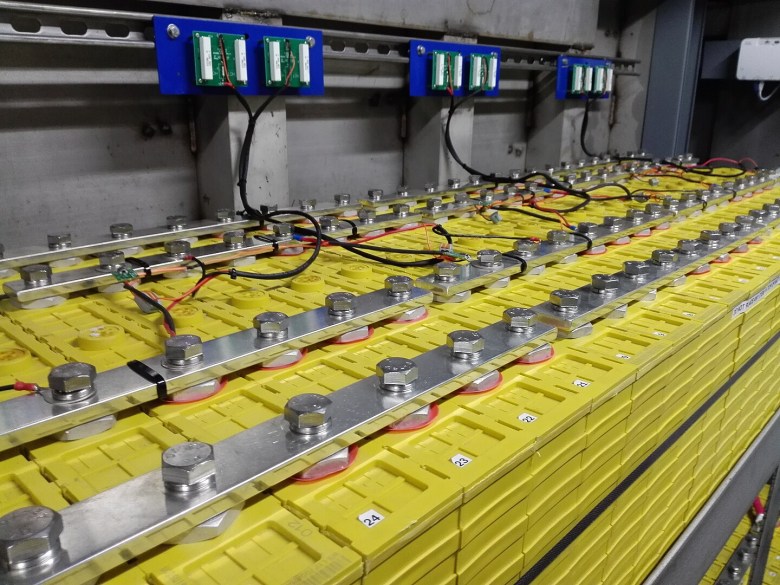The Republican “One Big Beautiful Bill” just signed by President Donald Trump
is terrible for renewable energy.
It will gut federal tax incentives for buying electric vehicles and constructing wind and solar farms, and some experts believe demand for EVs in the U.S. could slow dramatically with its passage.
That might seem like bad news for Arkansas’s nascent lithium industry. The mineral is an essential part of the batteries used by EVs and other green technologies. But leaders in the state’s lithium industry remain optimistic and are looking for ways to innovate.
At a small gathering in El Dorado on Monday, business leaders launched a new partnership with emerging technology companies with the goal of bolstering the developing industry in Arkansas.
The partnership, called the Arkansas Lithium Technology Accelerator, is being facilitated by The Venture Center, a nonprofit entrepreneur support organization based in Little Rock, along with the University of Arkansas, South Arkansas University, the state Economic Development Commission and the Walton Family Foundation. The goal of the “accelerator” is to link prospective lithium companies in south Arkansas with fellow technology startups that produce goods and services that complement the lithium industry.
Arkansas’s lithium rush has ramped up in the last few months, after state regulators
approved royalty rates and production areas proposed by energy startup Standard Lithium
and multinational giant ExxonMobil. Those two companies, and many more, are looking to take advantage of
vast amounts of lithium
in the salty brine found beneath Union, Miller, Lafayette, and Columbia counties in a geological region called the Smackover Formation. They aim to use a commercially untested process called direct lithium extraction to chemically remove lithium from the brine and refine the mineral into a form that’s usable for batteries for mobile devices, electric vehicle motors, and storage for solar and wind energy farms.
At the event, Venture Center executive director Arthur Orduña introduced three companies that would be partnering with four of the leading lithium companies in Arkansas through the course of the project: Telescope Innovations, a chemical company; RAM Geothermal, a geothermal energy venture; and Nano One, a cathode battery tech company. Representatives from each company spoke about how their enterprises could have positive impacts on the growing lithium industry.
Telescope Innovations, represented at the event by Ryan Jansonius, has already worked with Standard Lithium to develop a demonstration lithium plant Standard Lithium is operating with Lanxess Corporation in south Arkansas. Telescope builds robots to bring down the costs of chemical processes in the pharmaceutical and critical minerals sectors. Lithium is designated as a critical mineral by the U.S. government because the United States lacks a strong domestic supply chain for the mineral, which is essential for many growing industries. China has locked down many mineral supply chains, and has used its dominance in the mining and refining of minerals like lithium as
leverage over the U.S. in trade altercations.
Standard Lithium has received support from both the Biden and Trump administrations for its south Arkansas project as the U.S. tries to build a competing supply chain of critical minerals like lithium, manganese, gallium and other metals. The company is currently working on a feasibility study for construction of a huge lithium plant in Lafayette County near Stamps and Lewisville and hopes to begin construction later this year.
RAM Geothermal, represented at the event by Arkansan Darrell Pennington, is a new startup which aims to explore using the leftover heat from pumping lithium brine to produce electricity, which could then be used to power lithium plants with renewable energy. And Nano One, an established Canadian battery company, has created a more sustainable, efficient process for producing lithium batteries.
Nano One CEO Dan Blondal called their patented method the “one pot process.” Blondal explained that the company can take in all the raw materials needed for a cathode battery and produce it in one place, instead of different parts of the battery being assembled at different factories in different regions or countries.
But can the lithium boom survive President Trump’s “One Big Beautiful Bill?” A
recent report by The New York Times showed
that many experts believe electric vehicle demand in the U.S. could slow dramatically with the passage of the bill, and that China could continue to pull ahead in the electric vehicle industry.
But Blondal was “bullish” about the continuing growth of demand for lithium. Despite the recent Republican rollback of clean energy tax credits,
electric vehicle sales have skyrocketed globally since 2020
, according to data from the International Energy Agency. The first quarter of 2025 saw 10% more electric vehicle sales than the year before, according to Cox Automotive.
Electric vehicles are still growing rapidly in the U.S. and throughout the world, Blondal said, requiring “a massive amount of growth” in lithium-ion battery production. “But what is also new is the growth in data centers and in artificial intelligence,” he added. “AI takes a lot of energy…and batteries become a really important component and there has been a tremendous amount of demand for batteries to serve these data centers.”
Blondal pointed to the fact that the One Big Beautiful Bill keeps tax incentives in place for battery projects, which, coupled with a decline in incentives for electric vehicles, may lead to a rush to build out battery plants in the U.S.
In an interview after the presentation, Orduña told the
Arkansas Times
the goal of the technology accelerator project is to move on “building out a full end-to-end lithium battery supply chain economy” in Arkansas.
While companies like Standard Lithium and Exxon aim to produce refined lithium carbonate ready for battery companies, Orduña wants to see Arkansas become the center of the entire American lithium economy, with battery companies, refining plants, and other support businesses “planting a flag” in the state. He hopes their month-long technology accelerator will be the start of that process, and hopes to continue the program well into the future.
“I mean, I’m no scientist but from what I’m hearing from these companies is pretty freaking cool,” Orduña said. “In five years, when people ask, where is innovation happening in next generation energy and lithium battery supply chains? The immediate answer will be Arkansas … That will be what success looks like.”
It’s dragon-slaying time!
In a time when critical voices are increasingly silenced, the
Arkansas Times
stands as a beacon of truth, tirelessly defending the fundamental rights and freedoms within our community. With Arkansas at the epicenter of a sweeping culture war affecting our libraries, schools, and public discourse, our mission to deliver unflinching journalism has never been more vital. We’re here to “slay dragons” and hold power accountable, but we can’t do it alone. By contributing today, you ensure that independent journalism not only survives but thrives in Arkansas. Together, we can make a difference — join the fight.







